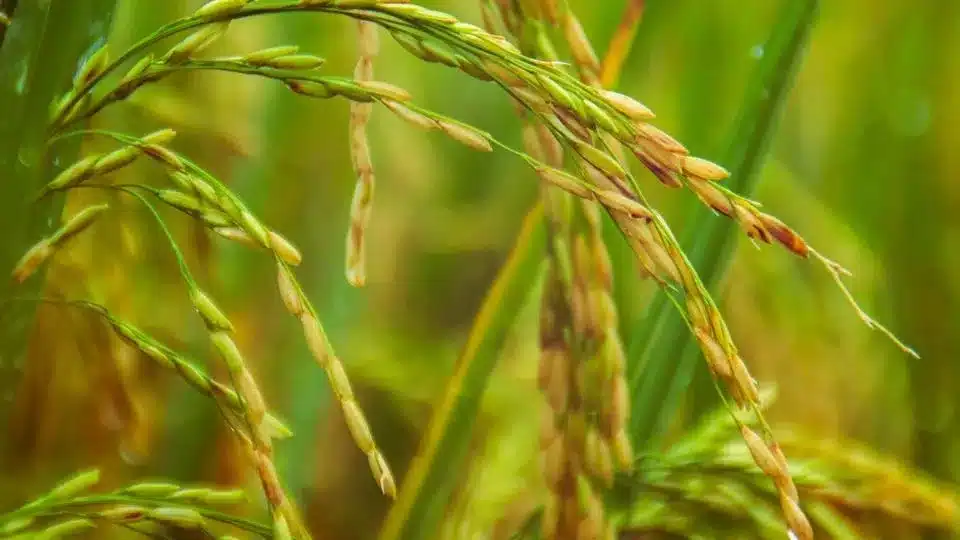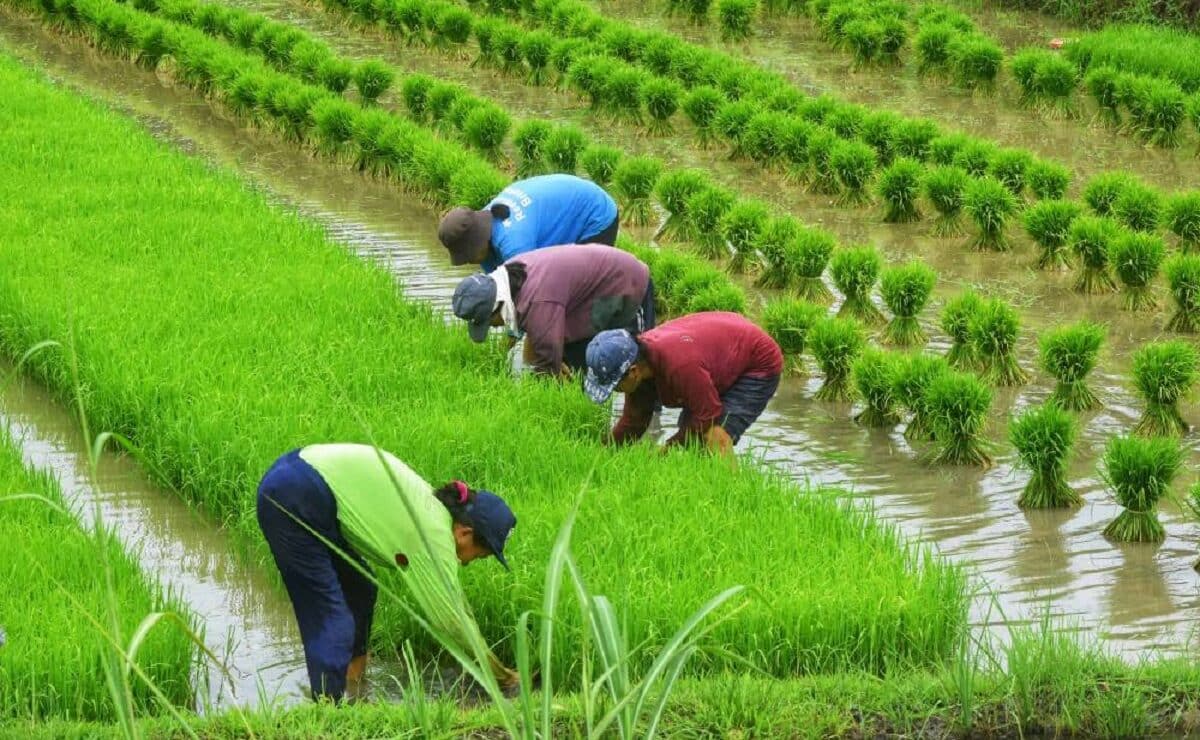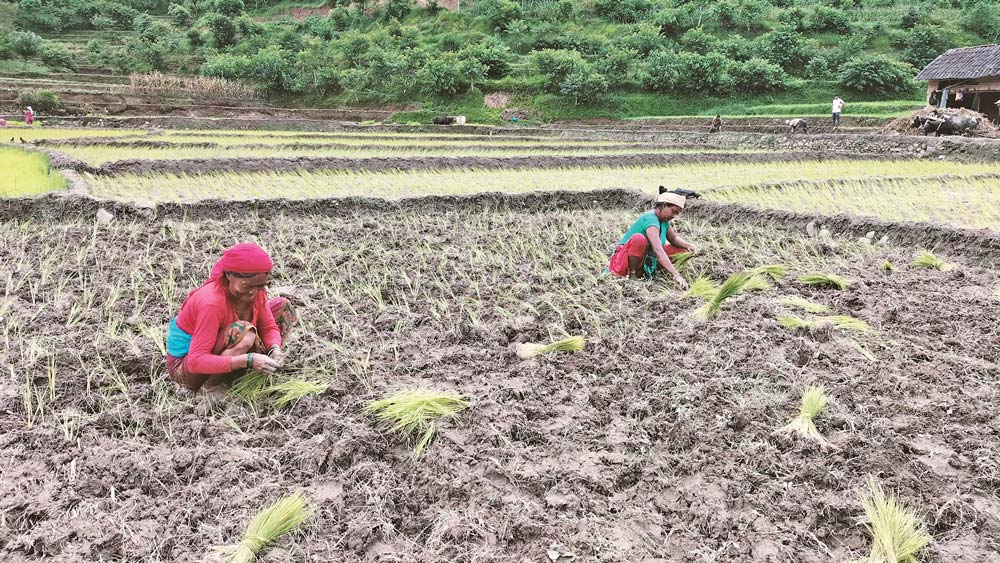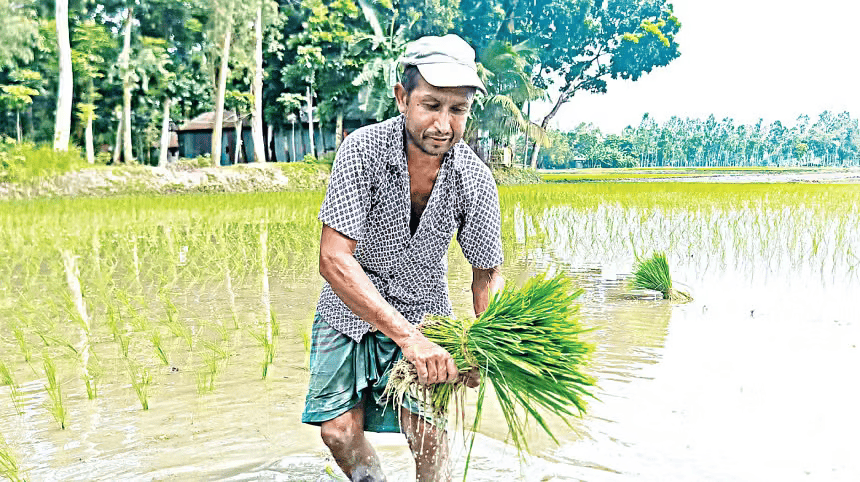Tags
Revolutionizing Rice Farming: Genome Editing to Combat Rice Yellow Mottle Virus

For small-scale farmers in Africa, the Rice Yellow Mottle Virus (RYMV) has been a relentless adversary, causing high crop losses and consequently impacting food security. However, recent breakthroughs in genome editing bring hope to these farmers. A research team from Heinrich Heine University Düsseldorf (HHU) and the French National Research Institute for Sustainable Development (IRD) has successfully developed new rice lines resistant to RYMV, potentially marking a turning point in the battle against this destructive virus.
The Power of Genome Editing
The research team’s approach hinges on the innovative use of CRISPR/Cas genome editing technology. This method was employed to produce mutations of the RYMV2 gene in an Asian rice variety. The result? A rice line with a similar resistance to the virus as its African counterpart. The underlying principle of this breakthrough is to edit relevant African elite rice varieties in the same manner, making them available and beneficial to African small-scale producers.
Boosting Crop Resilience in Africa
The implications of this research are far-reaching. As the Rice Yellow Mottle Virus has a significant economic impact on rice production in Africa, developing resistant varieties could drastically improve food security. The resistant rice lines, described in the Plant Biotechnology Journal, are a crucial step towards creating elite, locally adapted types for Africa’s small-scale food producers. The resistance to the virus these lines offer could lead to improved crop yields and more stable livelihoods for farmers.
A Global Impact on Food Security
While the focus of this research is on Africa, its potential impact is global. Rice is one of the world’s staple foods, and its production is vital to the food security of numerous countries. By targeting specific genes in the rice plant’s genome and creating resistance to the virus, the research aims to develop new varieties of rice that can withstand the virus. The successful application of CRISPR technology in this context could set a precedent for combating similar agricultural challenges worldwide.
A Groundbreaking Endeavour
The research project, which was part of Prof Frommer’s Alexander von Humboldt Professorship and took place within the framework of the Cluster of Excellence for Plant Research CEPLAS, is undeniably groundbreaking. Not only does it showcase the power of modern genome editing technology, but it also highlights the potential to revolutionise agriculture and boost food security in regions heavily affected by crop diseases.
The Future of Genome-Edited Crops
As the world grapples with the challenges posed by climate change, population growth, and food security, genome-edited crops could offer a viable solution. The research on RYMV-resistant rice varieties is a testament to this potential. While more work needs to be done, especially in terms of regulatory frameworks and public acceptance, the initial results are promising. The creation of virus-resistant rice lines through genome editing is not just a scientific achievement; it’s a beacon of hope for small-scale farmers and a potentially game-changing development in the global fight against food insecurity.
https://medriva.com/covid-19/revolutionizing-rice-farming-genome-editing-to-combat-rice-yellow-mottle-virus/Published Date: January 15, 2024






